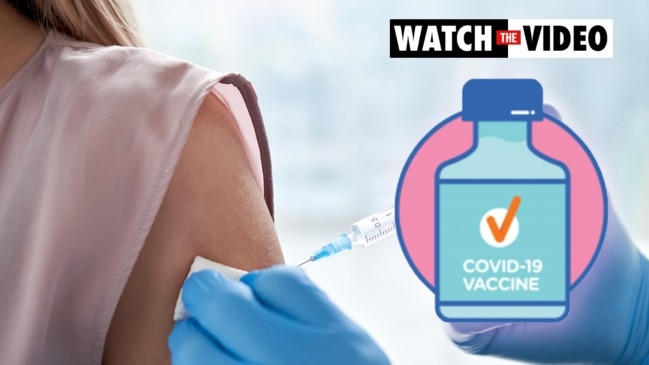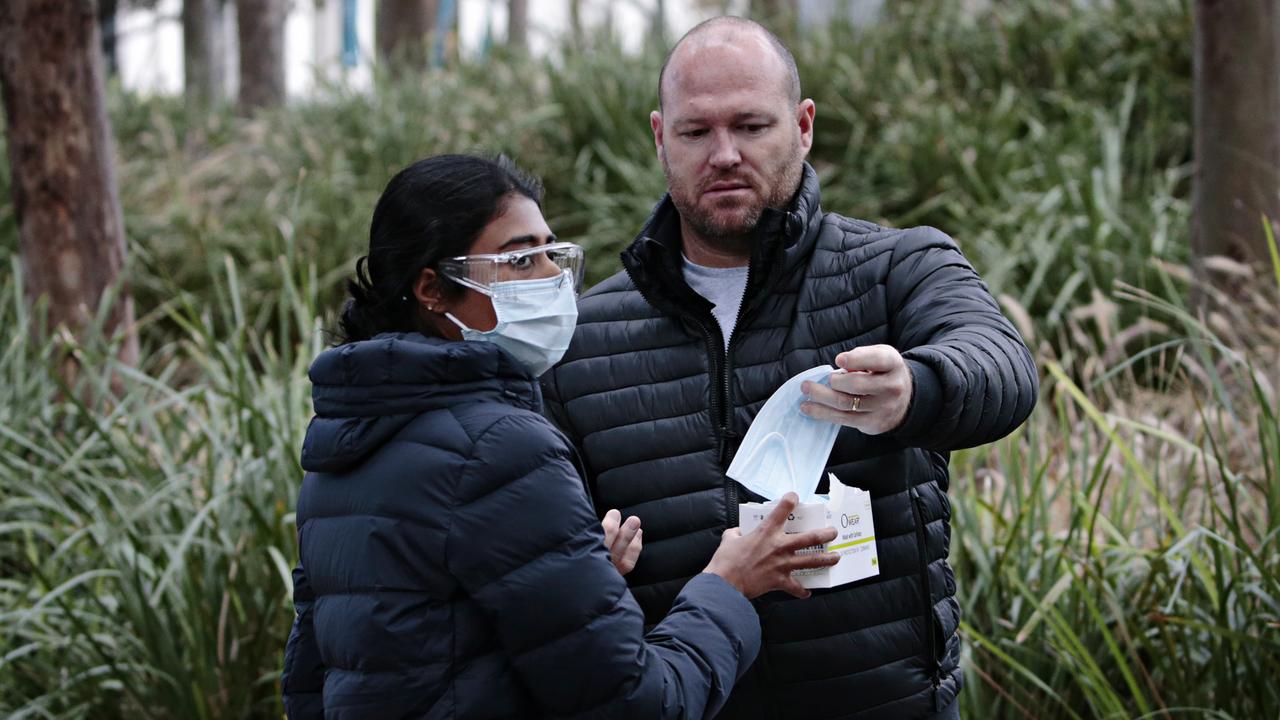Covid vaccine: Australia’s Pfizer, AstraZeneca rollout, risks and restrictions
As Australia tries to reach a 70 per cent vaccinated goal, here are the differences between Pfizer and AstraZeneca vaccines explained.

Age brackets for vaccines, differences between Pfizer and AstraZeneca, and when Australia will be fully vaccinated are some of the most common questions Aussies want answered.
We asked you what you wanted to know about the vaccine rollout – and put your questions and concerns to immunisation specialist and University of Sydney Associate Professor Dr Nick Wood.
Vaccinating against Covid-19 is the only way for Australians to get their normal lives back, but as a nation we’re struggling.
News.com.au’s Our Best Shot campaign answers your questions about the Covid-19 vaccine rollout.
What is the difference between the Pfizer and AstraZeneca vaccines?
The common goal of both vaccines is to initially produce a spike protein, then our body reacts to the spike protein and makes antibodies that will protect against Covid-19.
To get to that point, both companies have chosen to use the genetic code to spark the reaction. One is a DNA code that’s in AstraZeneca then an mRNA code is used in Pfizer – both codes spark a protein. The way they deliver the code is the difference.
The Pfizer puts the code inside of something like a soapy bubble, which, because it’s in that bubble, slides inside the cell.
The AstraZeneca puts the genetic code inside an adenovirus, which then infects the cell. It infects the cell and once the adenovirus gets inside the cell it delivers. The whole scheme is called an adenovirus vaccine vector.

Why are there age recommendations for vaccines?
When vaccines rolled out they had a lower age limit. For Pfizer, it was 16 and AstraZeneca was 18, then we started to see the issue of clotting (blood clots).
It was mainly with the AZ vaccine and what emerged was that the cases were quite significant in younger adults. The clotting stories were significant in 30 to 40 age groups.
The preference is to get Pfizer to people under the age of 60. Other countries have similar age restrictions.
What is the risk of blood clotting?
It is a very small risk, and we think the risk gets less the older you are. If you are worried about the risk in the older people, then your only option is to wait until Pfizer becomes widespread and more available.
While you’re waiting you are at risk of getting very sick from Covid-19.
If you were someone who lived in rural Queensland on a farm and you rarely saw anyone you might say you will wait. If you’re 70 and busy in the community where Covid is active, it would be likely recommended for you to take the vaccine.
We need to weigh up the risk of clotting and the risk of this (Covid). The other thing is being told what the clotting looks like, it has symptoms of headaches, tummy pain and pinpoint bruising.
[The most recent recommendation from the Australian Technical Advisory Group on Immunisation (ATAGI) “reinforces adults younger than 60 years old who do not have immediate access to Comirnaty (Pfizer) should reassess the benefits to them and their contacts from being vaccinated with Covid-19 Vaccine AstraZeneca, versus the rare risk of a serious side effect”.]
If you get clots, can you die?
Yes you can. There has been a link established between the AstraZeneca vaccine and a very rare but serious side effect called thrombosis in combination with thrombocytopenia. There is a very low chance of this side effect, which may occur in around 4-6 people in every million after being vaccinated.
We’ve had five deaths from 100 cases of clotting. [Another woman has since died after the AstraZeneca vaccine since talking to Dr Wood.] The deaths have been from when the clot is in the head. We know if you are picked up and diagnosed early-ish there is some medicine to reverse the problem. There have been people who have been successfully treated.
Risks of the Pfizer vaccine
Pfizer does cause some side effects – fever, headache, fatigue – in the first few hours.
There is a small sample size, more commonly in males, of cardio myocarditis and pericarditis. That is inflammation of the heart muscle or the lining of the heart. It has about a one in 40,000 or 50,000 chance of occurring and can appear within days or weeks.
The symptoms are chest pains and shortness of breath. If you get that, go to the GP or hospital emergency department and they can do ECG and blood tests. The ones that have been reported can be treated with Nurofen or other anti-inflammatories.
What are my chances of dying from Covid?
It’s like all these things. It depends on age, underlying medical conditions. Older people are more likely to die than younger. If we could predict who would live and die from contracting the virus it would be easier – but we can’t.
We know the virus can make people very sick, and kill them. We know you can be hospitalised and have to be treated in the ICU. We’re learning much more about ‘Long Covid’ and the associated heart and lung issues with that.
When should children get vaccinated?
The Therapeutic Goods Administration (TGA) has approved the use of Pfizer in 12 to 15-year-olds based on data from overseas.
The current question is who in this age group should be vaccinated. ATAGI said anyone with chronic issues or who is immunosuppressed, or Indigenous or living remote communities should be the first.
The reasons to get vaccinated are to protect yourself and also to protect the community. A child would tick both these boxes – we know they can spread it – but also there are cases of children dying from the Delta strain globally.
But adults need to be vaccinated more urgently as they get the disease worse. I suspect that it will be a step-down approach, to get as many adults vaccinated first.
When will Australia be fully vaccinated?
Figures from the Federal Government indicate that at its current pace, all of Australia would be vaccinated by January 2022.



